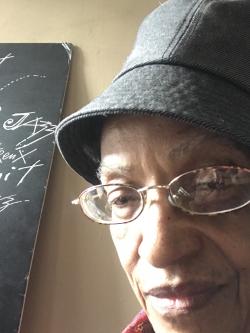In The Absence Of A Believable Reality
My brain breaks trying to parse some of the words I read. Often, the writer is not clear or the facts seem scattered and incohesive. Having been scattered and incohesive frequently, I understand this concept. Still, something is to be said for a lack of creative justification. In art, especially poetry, there are rules and no no's. Example: start a lovely rhyme scheme through the first six stanzas and then stop for the last two. Start with blank verse, then go to strick rhythm schemes. Why? Got tired? Hmmmm... Example: This is an excellent poem, but I wish you would not have said... Content is in the perview of the writer - hence the term author for authority. Example: The dog is a cat. Works in surrealism but most other verses keep animal designations pretty separate. I love it when I read a great poem and then the conclusion has nothing to do with what was above. Huh? Where did you go? Continuity is kinda important because it glues the poem together. It's as if the poet decided to start writing another poem at the end. Your choice, but you lose your audience a bit there.
My brain breaks when I have to see the world through the eyes of someone I don't think is truthfull, trustworthy, or moral. That's a given. You don't get a third chance to be stupid and expect me to believe you. Example: Because of perception, if you run for president and win, you release your tax returns. Too many billions, not enough billions, the profit and loss statements are mostly losses? What's the deal? Truth and integrity in life, as in art, is paramount.
Whose truth is basically what knits politics together. In the world, free speech and diversion from what you are told to say is cause for guys in black showing up with handcuffs and suddenly your family can't work anywhere anymore. Freedom is not a given in every counry. Who you trust, follow, advocate for infuses your character and reputation in USA. What you stand for determines who your are. In a Repubic (not a democracy) that is a very important right. You have a right to declare and prove by actions that "I am this!", but you can't say you are not that and then be believed later. No one can predict the future, but if enough people, say several million, don't like something or someone, that something or someone loses credibility. Will the truth out? We'll see.
We are in a credibility crisis. In a system where groups determine virtually everything, voters and leaders suddenly want to be individuals. I know, I get those confused sometimes too. We do not allow kings here or queens or princes or princesses. If you believe that they are allowed, somebody lied to you about how a republic operates. The Constitution is anti-nobility but periodicaly it lets slip the dogs of anti-competition as anti-trust practices allowing them full reign in the market place. It happens occasionally and we lose everything and start over. I'm thinking world wide financial and trade collapse will eventually let out the dogs of anti-everything and anti-everyone. We are good at starting over. Maybe next time we will get it right, or a the lease, closer to right.
There is an unspoken rule in rhetoric, that the opponent gets to reply. What writers know is that once it is in print they will know you are Christians by your love - you are labeled and pigeon holed by categories ranging from cool to crap. It takes courage to write. Good, bad, not following the rules, obtuse, ignorant, stupid, spot on universally correct, joyous, sad, happiness personified no differences are refused page time; free speaking and free publishing. But, in rhetoric, as in politics and social interactions, the reply may be an opportunity to change, otherwise what is a rhetoric for? I'm just sayin'.
Stella L. Crews
11-05-17
737a
